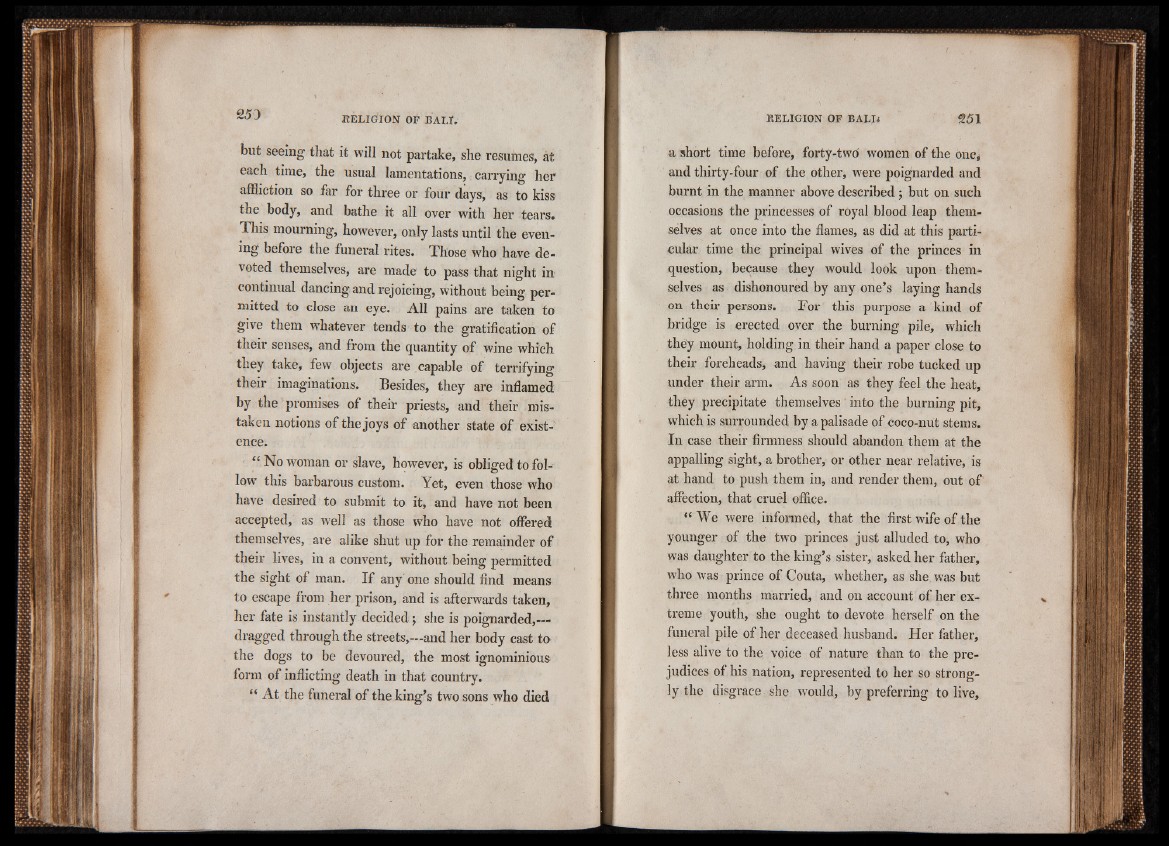
but seeing that it will not partake, she resumes, at
each time, the usual lamentations, carrying her
affliction so far for three or four days, as to kiss
the body, and bathe it all over with her tears.
This mourning, however, only lasts until the evening
before the funeral rites. Those who have devoted
themselves, are made to pass that night in
continual dancing and rejoicing, without being permitted
to close an eye. All pains are taken to
give them whatever tends to the gratification of
their senses, and from the quantity of wine which
they take, few objects are capable of terrifying
their imaginations. Besides, they are inflamed
by the promises of their priests, and their mistaken
notions of the joys of another state of exists
ence.
“ No woman or slave, however, is obliged to follow
this barbarous custom. Yet, even those who
have desired to submit to it, and have not been
accepted, as well as those who have not offered
themselves, are alike shut up for the remainder of
their lives, in a convent, without being permitted
the sight of man. If any one should find means
to escape from her prison, and is afterwards taken,
her fate is instantly decided; she is poignarded,—
dragged through the streets,—and her body cast to
the dogs to be devoured, the most ignominious
form of inflicting death in that country.
“ At the funeral of the king’s two sons who died
a short time before, forty-twO women of the one,
and thirty-four of the other, were poignarded and
burnt in the manner above described; but on such
occasions the princesses of royal blood leap themselves
at once into the flames, as did at this particular
time the principal wives of the princes in
question, because they would look upon themselves
as dishonoured by any one’s laying hands
on their persons. For this purpose a kind of
bridge is erected over the burning pile, which
they mount, holding in their hand a paper close to
their foreheads, and having their robe tucked up
under their arm. As soon as they feel the heat,
they precipitate themselves into the burning pit,
which is surrounded by a palisade of coco-nut stems.
In case their firmness should abandon them at the
appalling sight, a brother, or other near relative, is
at hand to push them in, and render them, out of
affection, that cruel office.
“ We were informed, that the first wife of the
younger of the two princes just alluded to, who
was daughter to the king’s sister, asked her father,
who was prince of Couta, whether, as she was but
three months married, and on account of her extreme
youth, she ought to devote herself on the
funeral pile of her deceased husband. Her father,
less alive to the voice of nature than to the prejudices
of his nation, represented to her so strongly
the disgrace she would, by preferring to live,